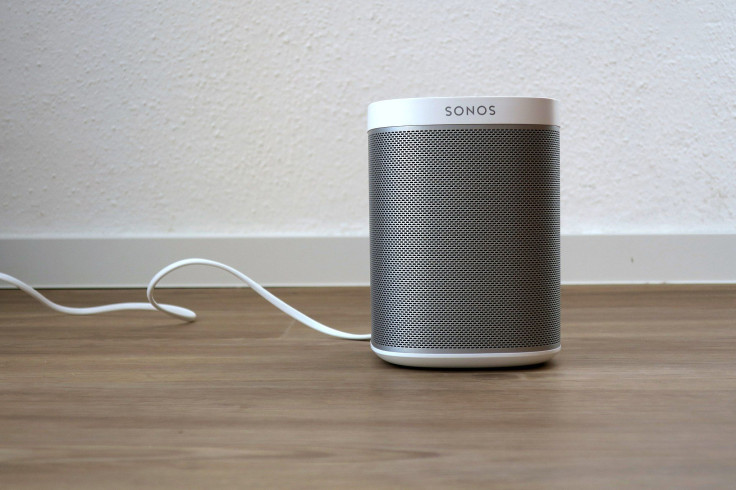Sonos Privacy Policy: Company Threatens To Brick Devices Over User Agreement

Sonos, the maker of a popular line of connected speakers, issued an updated privacy policy that doesn’t allow users the ability to opt out of data protection practices. Failing to agree to the policy could result in the speakers no longer functioning.
The change in practices came last week, as Sonos users received an email informing them of the company's updated policies. While users had the ability to accept the new terms or not, they no longer had the ability to opt out of specific parts of the agreement, including those that deal with Sonos’ ability to collect data about its users.
The new policy insists “Sonos respects your privacy and your rights to control your personal data,” while noting the company will begin to collect a number of data points once an update designed to allow for smart speaker integration—including support for Amazon Alexa devices—launches in the near future.

Of the data Sonos will automatically collect from its users is considered “functional data”—information the company has determined is essential to the function of its devices. Included in that batch of data are email addresses, IP addresses, account login information, device data, hardware information, room names and error data.
Sonos does allow users to opt out of submitting certain types of personal information including additional usage data that tracks device performance and activity information, but the rest will be gathered by default once the user says they agree to the privacy policy.
The alternative to accepting the new privacy policy is to decline it altogether, which is technically an option for Sonos users. However, it comes with a pretty big caveat: Sonos won't provide software updates for the device, which may result in it becoming entirely nonfunctional.
"If a customer chooses not to acknowledge the privacy statement, the customer will not be able to update the software on their Sonos system, and over time the functionality of the product will decrease," a spokesperson for Sonos told ZDNet.
The spokesperson also presented the new privacy policy as a sort of ultimatum for users. "The customer can choose to acknowledge the policy, or can accept that over time their product may cease to function," the spokesperson said.
A company is well within its rights to collect some data about its devices—especially information that is essential to keep the device operational—but Sonos’ attempts to force its new and potentially excessive data collection practices upon users, with the lone alternative being for the speakers to cease to work altogether, has drawn the ire of consumers and advocacy groups, including the Electronic Frontier Foundation and the Center for Democracy and Technology.
Sonos is not the only company to attempt to dip its hand further into the tank of user data in recent months. Media server software provider Plex also told its customers last week that it would start collecting more data about its users, including device data.
Plex received a significant amount of community push back over the change—which, like Sonos, it did not present an opt-out option for. The outcry from users eventually pushed Plex into reversing course and assuring its users that its service doesn’t “collect data that tells us what is in your library."
© Copyright IBTimes 2025. All rights reserved.




















